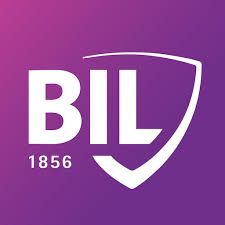
Banking jobs in Luxembourg
We'll explore the key factors that influence salaries in banking sector in Luxembourg and cover the documentation and visa requirements for international professionals wishing to work in the country
Being one of the financial centers of Europe due to favorable taxation and the abundance of companies whose offices are located in the country, Luxembourg offers applicants many vacancies in the financial sector. In turn, the financial sector contributes to the country's economy. In just a decade, this sector boosted tax revenues by impressive 5.1% annually. More than the half of the financial sector growth comes from banking.
The overview of the financial sector in Luxembourg
A detailed report from Luxembourg for Finance and Deloitte shows how the financial sector benefits Luxembourg. Between 2011 and 2021, the sector witnessed a robust annual growth rate of 2.5%, culminating in 64,592 employees by the end of 2021, a significant increase from 49,985 in 2011. In 2021, for every job created in the financial sector, an additional 1.1 jobs were created across the broader economy. This ripple effect meant that, by the end of 2021, a total of 135,519 jobs in Luxembourg were connected to the financial sector, making up 29.5% of all jobs in the country.
Main domain?
Among them the banking sector stands out. In 2021, it contributed a substantial 51.8% to the overall value added by the financial industry.
Education and skills necessary to work in the banking sector
Embarking on a career in banking in Luxembourg requires a strategic blend of education, professional skills and essential personal attributes. The role of a banker involves advising clients, overseeing banking transactions and playing a key role in managing clients' financial portfolios.
Another popular professional direction, commonly referred to as financial advisors, client relationship managers, or banking advisors cater to various clienteles, with job titles varying based on the client type (corporate, private, and more).
To step into the world of banking, a foundational education in finance ranging from a minimum of a bachelor's degree (Bac +2) to advanced degrees (Bac +4 and Bac +5) is imperative.
After completing secondary education, individuals can pursue a Brevet de Technicien Supérieur (BTS) in the banking sector. This two-year program offers specialized training, preparing students for roles such as bankers managing portfolios for individual clients. Key programs include:
- BTS negotiation and customer relationship,
- BTS banking,
- BTS in negotiation and digitalization of customer relations (NDRC),
- BTS operational sales management (MCO),
- BTS management of commercial units (MUC).
A three-year program focusing on preparing students for the banking sector with an emphasis on theoretical knowledge. This pathway often involves mandatory internships or alternance programs in the third year to enhance practical experience. Relevant programs include:
- Bachelor in finance,
- Bachelor in charge of banking, finance, and insurance clients,
- Bachelor in financial management and administration,
- Bachelor in insurance, banking and finance, so-called client manager.
For managing portfolios of large enterprises or pursuing leadership roles in banking, a minimum of a Bac +4 or Bac +5 is required. A Bac +5 qualifies individuals for a master’s degree, which can be obtained through university programs or business school pathways. Noteworthy programs include:
- Master in legal and financial sciences,
- Master in political science, finance option,
- Master in wealth management,
- Master of science in banking digitalization,
- Master of science in investment banking and financial engineering,
- Master of science in financial markets and trading.
What kind of banking jobs are available in Luxembourg?
Luxembourg's banking sector presents a vast array of professional opportunities for both recent university graduates and seasoned professionals. Given the sector's significant presence in Luxembourg, job seekers can explore employment possibilities across various domains within the banking industry.
Top-10 popular banking jobs in Luxembourg










Where to find a job in the banking sector in Luxembourg?
If you're eager to explore job opportunities in Luxembourg's banking sector, questions like "Where can I find finance jobs in Luxembourg?" or specific inquiries such as "Where can I find private banking jobs in Luxembourg?" may arise. Fear not, as we'll address your queries by navigating prominent job portals, spotlighting key companies in Luxembourg actively recruiting in the financial sector, and shedding light on the landscape of independent work.
Luxembourg companies recruiting in the banking sector
Luxembourg's banking sector boasts numerous opportunities for professionals, with various esteemed institutions actively seeking talent. Here's a curated list of 10 prominent banking employers in Luxembourg, each providing a unique scope of financial services.










Job portals offering vacancies in Luxembourg
To navigate the job market efficiently, the internet is your best ally, hosting numerous job portals with thousands of job listings. These platforms allow you to filter job offers based on your preferred sector, location, educational level, or required work experience.


Freelance in banking
Working independently in the banking sector is uncommon due to the highly regulated and complex nature of financial services. Banking involves intricate transactions, compliance requirements, and risk management, making it challenging for freelancers to navigate without the infrastructure and support of a larger institution. Additionally, client trust and regulatory adherence are paramount in finance, often necessitating the credibility associated with established banks.
However, freelancing in the banking realm could be an option for seasoned professionals with extensive industry experience, a robust client network, and specialized expertise. In niche areas like financial consulting or wealth management consulting where specific skills are in demand, freelancers may find opportunities to provide targeted services to clients seeking personalized financial advice.
What else can you read on the topic of employment in Luxembourg?
You will find a variety of articles on the job search, career development and workplace culture in our dedicated section of the Blog. Check it out.
Salaries of professionals in the banking sector in 2024
Attempting to specify salary ranges for certain areas reveals the wide variability caused by sub-branches, qualifications, and experience levels within each domain. While specific figures may vary, these ranges offer a glimpse into the diverse compensation landscape within the multifaceted field of banking in Luxembourg.
| Role | Minimum (euros) | Maximum (euros) |
| Account Manager | 3,090 | 7,070 |
| Anti-Money Laundering Specialist | 2,820 | 7,458 |
| Back Office Specialist | 2,814 | 6,635 |
| Compliance Specialist | 3,491 | 10,609 |
| Financial Analyst | 3,471 | 8,402 |
| Loan Specialist | 6,956 | 6,956 |
| Personal Banker | 2,459 | 6,350 |
| Private Banker | 3,263 | 8,392 |
| Relationship Manager | 3,347 | 8,825 |
| Risk Specialist | 3,387 | 8,583 |
Wage one can count on
The salary range for professionals in the Luxembourg banking sector typically spans from 4,384 euros (average minimum wage) to 9,794 euros (average highest median salary). However, given the sector's vastness with numerous branches and specializations, these figures provide a broad overview.
What papers do you need as a foreigner to land a banking job?
For European nationals, the process of working in Luxembourg is relatively straightforward, given the freedom to live and work in any European country. However, if you are not a European national, navigating the paperwork becomes essential.
The requirements vary based on your circumstances, distinguishing between employed and self-employed roles. Additionally, familial situations, such as having a Luxembourgish or European partner, can impact the process.


Work permit in Luxembourg
Frequently Asked Questions (FAQ)
What is the current employment outlook for banking jobs in Luxembourg?
The employment outlook for banking jobs in Luxembourg remains positive, reflecting the nation's thriving financial sector. With sustained growth and a diverse range of opportunities, professionals can expect a favorable market for securing positions in various banking domains.
What are the key sectors within the banking industry in Luxembourg?
Luxembourg's banking industry encompasses key sectors such as retail banking, private banking, corporate banking, investment banking, and financial services. Each sector presents unique roles and growth prospects, contributing to the sector's overall resilience and significance.
What education and skills are necessary to work in the banking sector in Luxembourg?
To excel in Luxembourg's banking sector, a range of educational backgrounds from bachelor’s to Master's degrees in finance, economics, or related fields are valuable. Essential skills include financial analysis, risk management, client relations, and a strong understanding of regulatory frameworks. Continuous learning and adaptability are crucial for staying competitive in this dynamic industry.
Source: paperjam.lu, www.luxembourgforfinance.com, www.inseec.com, www.hellowork.com, www.pole-emploi.fr, fr.indeed.com, www.orientation.com, fr.indeed.com, www.walterspeople.fr
We took photos from these sources: Viktor Forgacs for Unsplash, Luxembourg for Finance, Deloitte, Google Play, Facebook page of Banque of Luxembourg, ING, Spuerkeess, Degroof Petercam and Northern Trust YouTube pages, UBS Europe Crunchbase page, Nomura Bank X page, Flex Studio